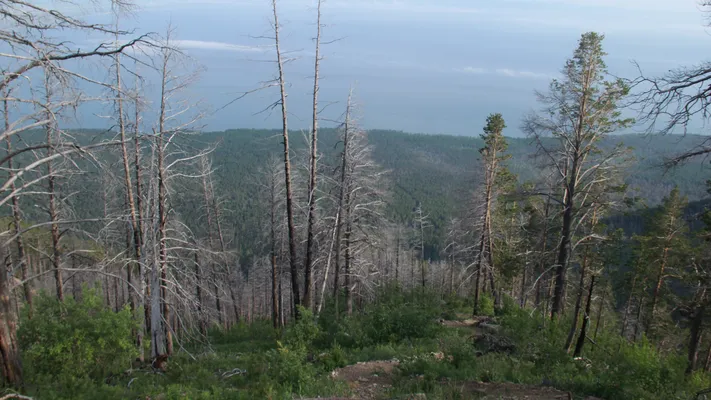BOFOR - Forest disturbances in the Russian boreal forest and their impact on carbon storage
Funding and duration:
German Research Foundation | 2025-2027
Summary:
Boreal forests store nearly one third of the world’s terrestrial carbon in biomass and soils, but the stability of the boreal forest carbon stocks has been subject to intensive debate in the recent literature, because forest disturbances such as insect outbreaks, windstorms or fires are expected to increase in response to climate change. While there is a sound knowledge base on changing forest disturbances in the North American and European boreal forests, only few case studies exist for the Russian boreal forests. Those few case studies only cover a small area of the vast extent of the Russian boreal forest, making the Russian boreal forest a global ‘blind spot’ on forest disturbances. Our limited understanding of forest disturbances renders the carbon budget of the Russian boreal forest highly uncertain. Within the BOFOR project, we propose to fill this knowledge gap by increasing our understanding of how changing forest disturbances impact the Russian boreal forest carbon budget. The project approaches its aim by the following six objectives: (1) Develop a unique spatially explicit forest disturbance dataset for the Russian boreal forest using Earth observation data that will cover the last 40 years at 30 meters spatial resolution. (2) Attribute forest disturbances to their causal agent including fire, wind, insect outbreaks and harvest. (3) Understand regional trends of boreal forest disturbances and their sensitivity to increasing climate extremes under climate change. (4) Quantify the rate of biomass recovery after disturbances across various forest types. (5) Understand the sensitivity of post-disturbance recovery to biotic, soil and climatic drivers. (6) Create a full carbon budget for the boreal forest, integrating disturbance and recovery for biomass, dead wood and soil carbon. The BOFOR project will close a key knowledge gap in the global forest carbon cycle and thus substantially improve our understanding of the climate change mitigation potential of global forests.
Project owner:
For more information please contact: Oleg.Zheleznyy(at)tum.de
Recent publications:
Current publications are in process and will be posted once available.
